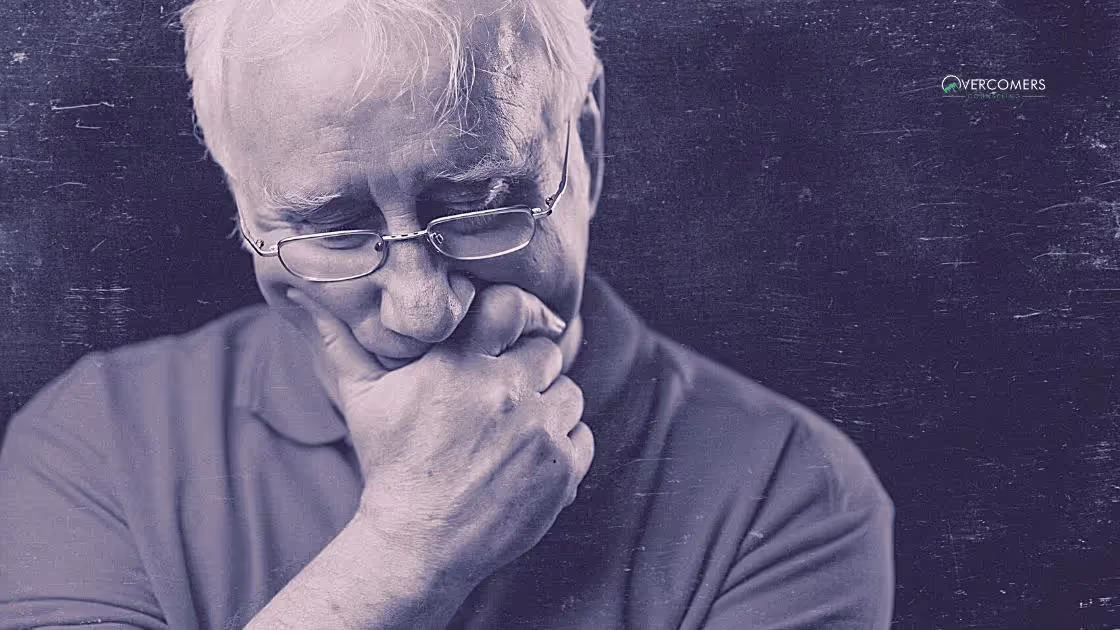When you lose a loved one, the grief you experience is natural and expected.But what do you do when you know someone close to you is going to die, and death...

When you lose a loved one, the grief you experience is natural and expected.
But what do you do when you know someone close to you is going to die, and death is imminent?
This is called anticipatory grief, and it can be just as intense and debilitating as regular grief.
Here's what you need to know about anticipatory grief, including how to cope.
Anticipatory grief is the sadness, anxiety, and uncertainty that comes with knowing that someone you love is going to die.
It can happen when death is expected (e.g., after a terminal diagnosis) or when death is sudden (e.g., in the case of an accident).
It's normal to feel a range of emotions when anticipating the loss of a loved one, and those emotions can be just as intense as the emotions experienced after the death itself.

There is no "right" way to grieve, and there is no timeline for grieving. So take whatever time you need to process your feelings�there is no rush.
Try to find healthy outlets for your grief. Some people find journaling helpful, while others prefer talking to friends or family members about their feelings.
Exercise can also be a great way to release some of the built-up tension and stress associated with grief.
Don't hesitate to seek professional help if you're finding it difficult to cope on your own.
There are many different symptoms of anticipatory grief, and they can vary from person to person.
Some common symptoms include feeling sad or depressed, having difficulty sleeping, feeling anxious or stressed, having changes in appetite, and feeling irritable or angry.
It is important to recognize these symptoms so that you can seek help if needed.
If you are experiencing symptoms of anticipatory grief, it is important to seek help from a mental health professional.
They can help you to understand your feelings and provide support and guidance through this difficult time.
It can be helpful to connect with other people who are going through similar experiences.
There are many online forums and support groups available for people coping with anticipatory grief.
These can be great resources for information and support.

It is important to take care of yourself both physically and emotionally when coping with anticipatory grief.
Make sure to eat healthy foods, exercise regularly, get plenty of sleep, and avoid alcohol and drugs.
It is also important to find healthy ways to express your emotions, such as through journaling or art.
Anticipatory grief can be very difficult to cope with, and it's ok to feel sad.
Allow yourself to process your emotions without judgment or guilt. It is important to allow yourself time and space to heal.
Remember that grief is a normal and natural response to the loss of someone you love.
By understanding anticipatory grief and how to cope with it, you can help yourself heal and move forward.
How can I tell if I am experiencing anticipatory grief?
There are a few signs that may indicate that you are experiencing anticipatory grief. These include feeling preoccupied with the impending loss, feeling overwhelmed by negative emotions, withdrawing from activities that you once enjoyed, and having difficulty sleeping or eating. If you are experiencing any of these signs, it may be helpful to speak with a mental health professional.
How can I cope with anticipatory grief?
There are a few things that you can do to cope with anticipatory grief. First, it is important to allow yourself to feel your emotions and express them in a healthy way. Additionally, staying connected with your support system and participating in activities that bring you joy can be helpful. Finally, it is important to make sure that you take care of yourself physically by eating well and exercising regularly.
Will anticipatory grief go away on its own?
For some people, anticipatory grief will lessen over time as they come to terms with the impending loss. However, for others, the grief may remain constant or even increase as the loss gets closer. If you find that your anticipatory grief is not improving or is causing significant distress, it may be helpful to seek professional help.
What should I do if I am struggling to cope with anticipatory grief?
If you are struggling to cope with anticipatory grief, there are a few things that you can do. First, try to reach out to your support system for help and understanding. Additionally, consider speaking with a mental health professional about how you are feeling and what coping strategies may be helpful for you.
At Overcomers Counseling, we understand the difficulty of anticipatory grief and how overwhelming it can be. We are here to provide support and guidance as you work through your emotions.
Our therapeutic services are tailored to meet the unique needs of each client, and our compassionate team is dedicated to helping you find healing. Contact us today for more information about how we can help.
If you or a loved one is struggling with anticipatory grief, please don't hesitate to reach out for help. Our team at Overcomers Counseling is here to provide compassionate and professional support to help you cope with your emotions and move forward.
Anticipatory grief is the sadness and anxiety that comes with knowing someone you love is going to die.
It's normal to feel a range of intense emotions when anticipating the loss of a loved one, but there are things you can do to cope with your grief.
Take whatever time you need to grieve, journal your feelings, talk to friends or family members, exercise, and seek professional help if necessary.
The duration of grief counseling varies for each individual, depending on the severity of their grief and their progress in therapy. Our therapists will regularly assess your progress and adjust your treatment plan as needed.
There are a few things you can do to help ease your pain during the holiday season. First, try to avoid triggers that may cause you to feel sad or upset. Triggers can be anything from certain songs or smells, to seeing certain people or places. If you know there will be triggers at holiday gatherings, try to arrive late or leave early if possible. You can also try to create new traditions that don't involve the triggers.
It is not mandatory that all conversations revolve around the issue causing your grief but our therapists will provide guidance on how best to process the situation. You are in control of how much or little you want to share in a session, but it is important to stay open and honest with your therapist for optimal results.
Yes, we provide supportive counseling for family members who are struggling with the loss of a loved one. Our compassionate therapists can help you gain insight into your feelings and provide constructive strategies to cope with the pain of bereavement.
Grief can seem worse in the morning as the reality of the loss is often one of the first thoughts upon waking. This can be particularly true if you shared many mornings with the person who has passed away during wonderful years spent together.
Dealing with someone who is addicted to drugs or alcohol can be difficult. It is important to remember that addiction is a disease, and the addict is not responsible for their behavior. You can offer support and understanding, but it is important to set boundaries. You can also get help for yourself through therapy or counseling.